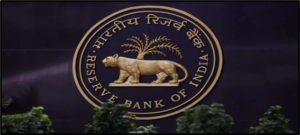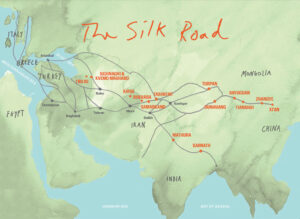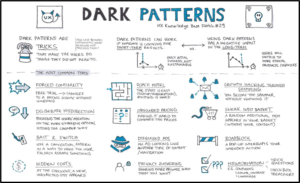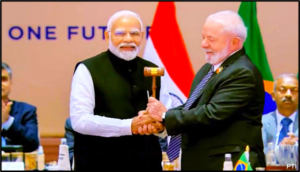Preliminary Pointers.
RBI discontinued ICRR
- News: The extra 10% of new deposits that banks are required to hold with the Reserve Bank of India (RBI) will be released gradually.
- The RBI announced a 10% Incremental cash reserve ratio (I-CRR) for banks on the growth in their net demand and time liabilities (NDTL) between May 19 and July 28 in its monetary policy last month.
- The main reason for the choice was to deal with the sudden increase in liquidity caused by the return of 90% of the 2,000-note supply to the banking system.
- The RBI seeks to limit liquidity and does not want inflation-inducing surplus liquidity. That is why they want to preserve system liquidity around one trillion dollars.
- The ICRR reduction has been calibrated by RBI so as to have a minimal effect on system liquidity.
- The money flowing through ICRR will mostly be offset by the outflow through currency in circulation and forex intervention.
| I-CRR
● What is I-CRR? The I-CRR was put into place to absorb excess liquidity in the banking system, which was principally brought on by the reintroduction of Rs 2,000 notes, the transfer of the RBI’s surplus to the government, and an increase in government spending. ● Impact of I-CRR on the banking system’s liquidity conditions? The I-CRR momentarily created liquidity shortfalls by absorbing more over Rs 1 lakh crore of surplus banking system liquidity. However, when the RBI absorbed excess cash, the liquidity situation improved. ● Difference between CRR and I-CRR: The CRR, which is currently set at 4.5%, is a statutory reserve requirement that banks must uphold with the RBI. It cannot be used for lending or investing; instead, it protects the banking system’s stability.
|
Italy quits BRI?
- News: Giorgia Meloni, the prime minister of Italy, said later in the day that “there was more to Italy’s relationship with China than the BRI” after Italian media reported on Sunday that the country intended to withdraw from China’s Belt and Road Initiative (BRI). Giorgia Meloni stated at a news conference following the G20 summit in New Delhi that a final decision on leaving the Belt and Road Initiative was still pending.
Why does Italy seek to withdraw from the BRI?
- After surviving three recessions in ten years, Italy joined the BRI at a time when it was in critical need of investment and infrastructure development. At the time, its leadership had chilly relations with the EU and was pleased to look to China for the money it could inject. Four years later, the deal hasn’t done anything concrete for Italy.
- Chinese foreign direct investment in Italy decreased from $650 million in 2019 to just $33 million in 2021, according to data from the Council on Foreign Relations. In fact, the nation invested significantly more in European nations outside of the BRI.
- Italy’s exports to China have climbed from 14.5 billion euros to only 18.5 billion euros since joining the BRI, whereas Chinese exports to Italy have increased from 33.5 billion euros to 50.9 billion euros.
Despite these clear issues, there will be other factors at play: While US-China relations have been tumultuous for some time, numerous European nations have kept strong commercial and trade ties with the Asian economic powerhouse. Rethinking has been compelled by the conflict between Russia and Ukraine, China’s alleged steadfast backing of Vladimir Putin, and geopolitical tensions manifesting in trade penalties.
| BRI
● The vast commercial and infrastructural network known as China’s Belt and Road Initiative aims to link the country with the West in a manner similar to the old Silk Road. As part of the plan, promoted by the Xi Jinping government, China has constructed or provided funding for ports, bridges, roads, and even digital connectivity networks in associate nations. ● Italy joined the BRI in 2019. |
Dark patterns
News: Public feedback is invited by October 5 on the drafted rules to prevent and control dark patterns.
- What is dark pattern? India’s initiatives to control deceptive e-commerce trade practises, or “dark patterns.” The phrase “dark patterns” was initially coined in 2010 by Harry Brignull.
- Examples of dark patterns: It includes the automatic selection of travel insurance when purchasing airline tickets, the requirement to enter an email address or phone number in order to access an e-commerce site, which is then used to send messages or emails that are difficult to block, and birthday wishes that encourage users to purchase gifts for themselves.
- Actual case scenario: Amazon’s complicated, multi-step cancellation process for Amazon Prime subscriptions received criticism in the EU. After engaging with consumer regulators, Amazon streamlined the cancellation process for online consumers in European nations this year.
What is being done?
- The European Data Protection Board published instructions on how to identify and stay away from “dark patterns” on social media platforms;
- Federal Trade Commission of the United States issued a similar alert about an increase in “sophisticated dark patterns designed to trick and trap consumers.”
US OPEN
News: By winning the US Open final with a comeback victory over Aryna Sabalenka, American teen Coco Gauff realised the potential she has long hinted at. This is the first Grand Slam championship for Gauff, who is only 18 years old.
- Novak Djokovic won the men’s singles title at the US Open for the fourth time by defeating Daniil Medvedev in the final.
History of US Open
- The US Open is an international tennis championship and competition, officially known as the United States open tennis championship.
- The annual grand slam in tennis tournament history is made up of the fourth major championship. Every year, this competition lasts for two weeks in late August and early September.
- Since 1978, this championship competition has been held in the US. The US Tennis Association’s Acrylic hard court served as the venue for the competition.
- The US Open final so features five major categories from the US Tennis Championship. Men’s singles and doubles, women’s singles and doubles, and mixed doubles fall under these categories.
Next G20 will be chaired by Brazil
News: Brazilian President Luiz Inacio Lula da Silva has taken over the G20 chairmanship from Indian Prime Minister Narendra Modi. The country of Brazil will host the G20 Summit in 2024. Lula da Silva complimented Modi for his leadership while emphasising the importance of social inclusion, the fight against hunger, the transition to clean energy, and sustainable development for the upcoming session.
About G20
- G20 is made up of 19 nations: Argentina, Australia, Brazil, Canada, China, France, Germany, Greece, Italy, India, Japan, Korea, Mexico, Russia, Saudi Arabia, South Africa, Turkey, the United Kingdom, the United States, and the European Union.
- Around 85% of the global GDP, 75% of all international trade, and 2/3 of the world’s population are all represented by these members.
- Along with these member nations, the G20 also annually welcomes special guests and international institutions including the UN, World Bank, IMF, OECD, ASEAN, etc. to take part in its meetings.
Transfer of India’s B20 Presidency
- Transfer of the presidency from India to brazil, the B20, a group that represented business at the G20 conference, was essential in influencing policy and stimulating conversations on a number of pressing global issues.
- The B20, which was presided over by India, was led by N. Chandrasekaran, and the theme of the presidency was “Vasudeva Katumbakam” — One Earth, One Family, One Future.
- The B20 Summit’s theme: The three-day B20 summit, which India held from August 25 to August 27, had the theme “R.A.I.S.E.”—Responsible, Accelerated, Innovative, Sustainable, and Equitable Business.








